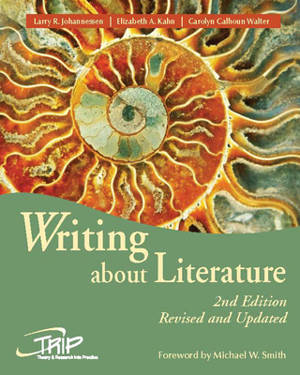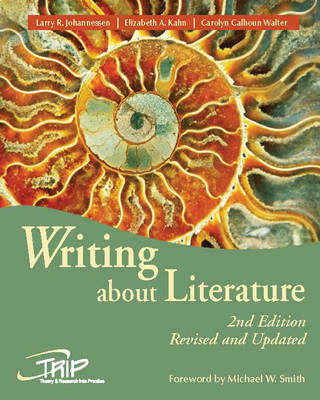
Door een staking bij bpost kan je online bestelling op dit moment iets langer onderweg zijn dan voorzien. Dringend iets nodig? Onze winkels ontvangen jou met open armen!
- Afhalen na 1 uur in een winkel met voorraad
- Gratis thuislevering in België vanaf € 30
- Ruim aanbod met 7 miljoen producten
Door een staking bij bpost kan je online bestelling op dit moment iets langer onderweg zijn dan voorzien. Dringend iets nodig? Onze winkels ontvangen jou met open armen!
- Afhalen na 1 uur in een winkel met voorraad
- Gratis thuislevering in België vanaf € 30
- Ruim aanbod met 7 miljoen producten
Zoeken
Omschrijving
This book is intended to help middle and secondary school English language arts teachers integrate literature study and composition instruction. Literary analysis and well-honed analytical writing skills are crucial for student success--in English class as well as on writing assessments and in other content area classes. Unfortunately, these skills are often taught separately from one another and students have a hard time making the connections between the two. Drawing on years of real classroom experience, this follow-up to NCTE's immensely popular Writing about Literature (1984) addresses the challenge many teachers face: How can we use writing assignments to deepen students' understanding of literature, while at the same time improve their writing, critical thinking, and analytical skills? A Theory and Research into Practice (TRIP) book, Writing about Literature, 2nd ed., Revised and Updated seeks to answer this question by first providing an overview of the key components of theory and research--including assessment, literary interpretation, composition, sequencing, and activity design--and then offering an extensive selection of practical activities to help students learn how to interpret literature, write compelling arguments, and support those arguments using evidence from the text. Specific activities include Exploring role models from To Kill a Mockingbird and The House on Mango Street, analyzing characters from "Everyday Use" and Huckleberry Finn, and interpreting love themes from Romeo and Juliet and Shakespeare's sonnets. Featuring two dozen reproducible handouts and suggestions for adaptations, all of the activity sequences are designed to be used as a teaching tool--a model for teachers and students to use as they study other texts and types of literature.
Specificaties
Betrokkenen
- Auteur(s):
- Uitgeverij:
Inhoud
- Aantal bladzijden:
- 104
- Taal:
- Engels
- Reeks:
Eigenschappen
- Productcode (EAN):
- 9780814132111
- Verschijningsdatum:
- 18/02/2009
- Uitvoering:
- Paperback
- Formaat:
- Trade paperback (VS)
- Afmetingen:
- 198 mm x 249 mm
- Gewicht:
- 258 g

Alleen bij Standaard Boekhandel
+ 72 punten op je klantenkaart van Standaard Boekhandel
Beoordelingen
We publiceren alleen reviews die voldoen aan de voorwaarden voor reviews. Bekijk onze voorwaarden voor reviews.











